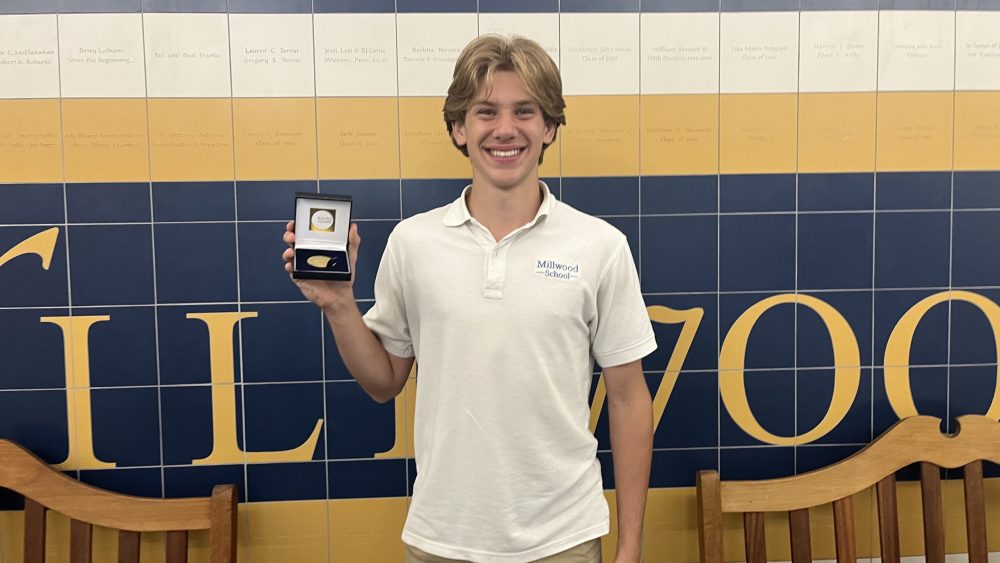
A King Constantine Medal Story – Finn Ryan, Millwood School
When Finn Ryan, a student at Millwood School, USA, learned of the challenges faced by families in Malawi without access to clean water, he felt a responsibility to act. Finn was awarded his school’s King Constantine Medal for 2025.
“When I first learned about the challenges faced by children in Malawi, I was deeply moved”, he says. “My fifth-grade teacher used to tell us stories about her time teaching there. I remember one photograph of children playing football without shoes or shin guards. She told us that after the game, they would walk two to four miles just to fetch water. That image stayed with me.
“Two summers ago, our family’s spring box at our house dried up. We went several weeks without running water, and during that time, I found myself thinking constantly about those children in Malawi. For us, it was an inconvenience, but for them, it was everyday life. That was the moment I decided to do something about it.
“What started as a simple idea, to help provide clean water for a village, soon became a mission that changed how I understood leadership and service. I began by raising awareness in my school and local community about what life is like without access to safe water. Through bake sales, personal outreach, and a GoFundMe campaign, I raised $4,400.
“An important part of the process was working with Cos Phiri, a Malawian who lives in my local community but remains closely connected to his home country. He helped me understand the needs of the people there and introduced me to friends who guided me in choosing a village that would benefit most. It was very important to me that this project was done with the community, not for them.
“There were challenges along the way. There were times when the goal felt too big, or the fundraising too daunting, but this project taught me that responsibility in service means seeing things through, even when it is hard, because others are counting on you.
“When the well was finally completed, I travelled to Malawi to witness its opening. Standing there with the people who had made it all possible, I felt an overwhelming mix of disbelief and gratitude.
“The village chief spoke through a translator and said that this well would serve hundreds of people, far beyond my lifetime. That comment really made me realize that I had done something that will help not only this generation but for generations to come. I felt an enormous sense of pride.
“Receiving the King Constantine Medal means so much to me. It reminds me that age should never be a limit when it comes to making a difference. I hope that this well continues to bring life to the community for generations to come and that it inspires others to find their own way to help those in need.”
Are you inspired by Finn? Here are four things to consider when starting a similar project:
Step 1: Identify a Need and Learn About It
- Find a community or cause that inspires you and research its challenges carefully.
- Talk to people, read about the context, and understand the local culture and priorities.
- Make sure your idea addresses a genuine need, not just what you think is helpful.
Step 2: Plan and Raise Support
- Break the project into achievable steps: fundraising, logistics, partnerships, and timelines.
- Engage your school and local community—bake sales, events, social media campaigns, or crowdfunding can all help.
- Build relationships with local contacts in the community to ensure your project is respectful and relevant.
Step 3: Take Action and Collaborate
- Implement the project with the community, involving them at every stage.
- Listen to their ideas, respect their expertise, and make decisions together rather than for them.
- Stay persistent, even if obstacles arise—perseverance and adaptability are key.
Step 4: Reflect, Sustain, and Share
- Reflect on what worked, what you learned, and how the project impacted the community.
- Think about long-term sustainability: how can the community continue to benefit after your involvement?
- Share your story to inspire others, but always focus on the community’s achievements and voices as well as your own.
